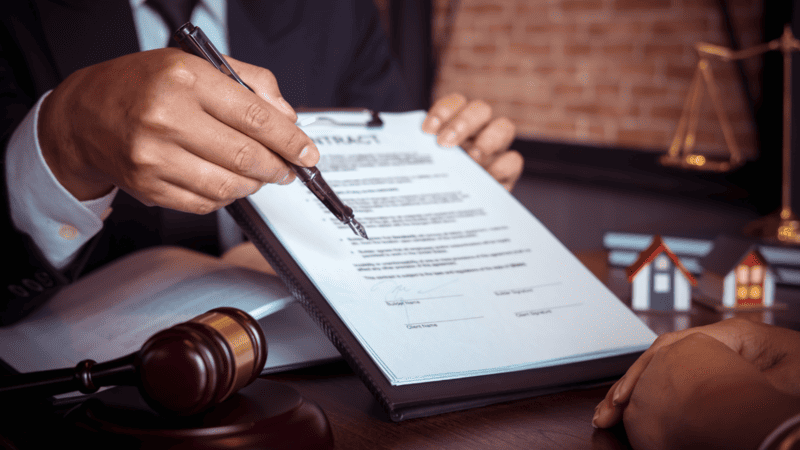How to Choose the Right Lawyer for Your Case? Avoid Costly Mistakes
Finding the right lawyer can significantly impact the outcome of your case. Whether you're dealing with a personal injury claim, a business dispute, or a criminal charge, choosing the right legal representation is crucial.
With so many attorneys available, knowing how to evaluate and select one that fits your needs can be overwhelming.
In this guide, you'll find key factors to consider when selecting a lawyer, including their experience, specialization, reputation, fees, and communication style. You'll also learn how to assess their qualifications and where to find reliable legal professionals.
What Factors Should You Consider When Choosing a Lawyer?
Before hiring an attorney, it's essential to evaluate several factors to ensure they are the right fit for your case. Making an informed decision can save you time, money, and stress. Consider the following:
- Experience: How many years have they been practicing law? Do they specialize in cases similar to yours?
- Reputation: Are they well-regarded by peers and past clients?
- Cost: Do they charge hourly, a flat fee, or a contingency fee? Are their rates within your budget?
- Availability: Will they have time to dedicate to your case?
- Communication: Do they respond promptly to inquiries and explain things clearly?
How to Find the Best Attorney for Your Case
Once you know what to look for in a lawyer, the next step is finding one who meets your criteria. There are several ways to locate a qualified attorney:
- Certified Lawyer Referral Services – Many state bar associations offer referral services that connect individuals with licensed attorneys specializing in various legal fields.
- Personal Recommendations – Friends, family, or colleagues who have worked with a lawyer can provide valuable insights into their professionalism and effectiveness.
- Online Directories – Websites like Avvo, Martindale-Hubbell, and your state bar association’s directory list qualified attorneys and their areas of expertise.
- Public Interest Organizations – Nonprofit legal groups may offer referrals or direct legal assistance, especially in cases involving civil rights, tenant rights, or employment disputes.
- Prepaid Legal Plans – Some workplaces or unions offer legal service plans that provide discounted or free consultations.
What Type of Lawyer Do You Need?
Not all lawyers handle the same types of cases. Choosing a lawyer who specializes in the relevant area of law is essential for a successful outcome. Some common legal specialties include:

- Personal injury: Car accidents, medical malpractice, or workplace injuries.
- Family law: Divorce, child custody, or adoption.
- Criminal defense: DUI, drug charges, or assault.
- Business law: Contracts, intellectual property, or employment disputes.
- Estate planning: Wills, trusts, or probate matters.
- Real estate: Buying, selling, or landlord-tenant disputes.
If you're unsure which type of lawyer you need, consulting with a general practitioner or a referral service can help guide you in the right direction.
How to Assess a Lawyer’s Reputation and Credential
Before hiring an attorney, you should research their background to ensure they are reputable and competent. There are several ways to verify a lawyer’s credentials:
- State Bar Website: Most states have an online database where you can check if an attorney is licensed and whether they have any disciplinary history.
- Client Reviews and Testimonials: Reading feedback from past clients can give you an idea of their success rate and professionalism.
- Martindale-Hubbell and Avvo Ratings: These platforms provide peer and client ratings that help assess an attorney’s reputation.
- Case Results: If available, reviewing an attorney's past case outcomes can provide insight into their level of expertise.
Verifying these factors can help you determine whether a lawyer is truly qualified to handle your case.
Understanding Lawyer Fees and Billing Structures
Legal fees vary depending on the lawyer’s experience, location, and the complexity of your case. Before hiring an attorney, it's important to understand how they charge for their services:
- Hourly Rate: Common in litigation and business law cases, where attorneys charge per hour of work.
- Flat Fee: Used for straightforward legal tasks like drafting wills or contracts.
- Contingency Fee: Typically used in personal injury cases, where the lawyer takes a percentage of the settlement if you win.
- Retainer Fee: Some attorneys require an upfront payment, which they bill against as they work on your case.
Always request a written fee agreement to avoid misunderstandings about costs and payment terms.
Questions to Ask When Interviewing a Lawyer
Once you've shortlisted a few attorneys, scheduling a consultation can help you determine if they’re the right fit. Here are some essential questions to ask:
- How many cases like mine have you handled?
- What is your typical strategy for a case like mine?
- How will you communicate updates about my case?
- What are the possible outcomes of my case?
- How do you structure your fees and billing?

Compatibility and Communication: Why They Matter
Beyond experience and cost, a strong attorney-client relationship is essential for a successful case. You should feel comfortable discussing sensitive details with your lawyer and trust their guidance.
Key factors to consider:
- Responsiveness: Do they return your calls and emails promptly?
- Clarity: Do they explain legal concepts in a way you can understand?
- Personal Approach: Do they listen to your concerns and show genuine interest in your case?
If you feel uncomfortable or unheard, it may be best to seek another attorney who aligns better with your needs.
What If You Can’t Afford a Lawyer?
If you need legal assistance but cannot afford an attorney, there are options available:
- Public Defenders: If you're facing criminal charges and qualify financially, the court may appoint a public defender for free.
- Legal Aid Organizations: Many nonprofits provide free or low-cost legal assistance to individuals with limited resources.
- Pro Bono Services: Some law firms offer free legal services for qualifying clients.
- Law School Clinics: Many law schools have student-run clinics that offer legal assistance under faculty supervision.
Exploring these alternatives can help you secure legal representation without financial strain.
Making Your Final Decision
After evaluating all these factors, it's time to choose your attorney. Selecting the right lawyer means balancing experience, cost, availability, and compatibility. Here’s a quick checklist to ensure you’re making the right choice:
✔️ Does the lawyer specialize in your type of case?
✔️ Do they have a strong reputation and client reviews?
✔️ Are their fees clear and reasonable for your budget?
✔️ Do they communicate effectively and keep you informed?
✔️ Do you feel comfortable working with them?
Final Thoughts
Finding the right lawyer is a crucial step in resolving your legal matter successfully. By considering specialization, reputation, costs, and communication style, you can make an informed decision. Whether you need an attorney for a lawsuit, estate planning, or business matters, taking the time to research and compare options will help you achieve the best outcome.
